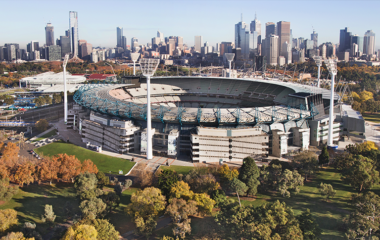Featured in the January edition of PFM, Paul McCarthy, Chief Technology Officer at Service Works Global, discusses how Al is supporting asset maintenance and estate management at transport hubs.
Sweden is a leading country regarding carbon reduction, with a goal of achieving Net Zero greenhouse gas emissions by 2045. A key part of this objective is to increase use of public transport. The country has set a target of 40% of major domestic journeys being on public transport, up from 12% in 2021. If the public transport network is to see such an increase in usage, it’s imperative that stations are well managed and maintained. A broken escalator at peak times can cause havoc at a station and put people off using public transport.
At SWG, we have been supporting a major company in Sweden that manages a network of railway-related properties and stations to ensure that these maintenance faults do not happen. Now Al is taking this a step further by providing enhanced insight and information to building managers. It is enabling building owners and operators to optimise not only their reactive and planned maintenance regimes, but also incorporate predictive maintenance into their FM strategy.
Predictive v Preventative Maintenance
Planned preventative maintenance is scheduled maintenance on an asset where service visits are carried out by a technician to avoid unscheduled breakdown and downtime. Predictive maintenance utilises data to determine the point when maintenance is necessary, minimising spare parts costs, system downtime, and time spent on the work. This is best done using sensor technology, connected to a Building Management System (BMS). The performance of an asset connected to a BMS can be compared to pre-established limits to determine if it is working correctly or not. Readings outside of the limits will automatically alert the integrated CAFM software, creating a job and assigning an operative.
Al is taking this further by using machine learning to predict and prevent equipment failures before they happen. Gone are the days where every asset needs to be manually assessed on a set timescale, or new assets need to be budgeted for because they must be replaced after a defined period of use. Station management is a challenge at the best of times, and especially so during winter. Wet and icy conditions can present a health and safety hazard, and also play havoc with key assets such as lifts and escalators. Facility managers often find themselves putting out proverbial fires, rather than being able to plan for challenges in advance. But Al is helping to change this.
Our lot platform, Senslinc, helps our clients with these challenges, to give their teams the edge in how they manage busy transport hubs. The tool monitors equipment performance via live feeds. Resultant data considers seasonal factors which may be affecting asset reliability, for example, cold winter months when roads are likely to be gritted. Grit is easily trampled into a station and when too much of it gets into the mechanisms, is a common cause of escalator malfunctions. By being able to tap into accurate and timely information on the operation of a particular escalator, FM teams have accurate, real-time insight in helping diagnose possible problems and scheduling preventative maintenance before failure occurs. Al functionality learns to utilise this performance data to predict trends, allowing FM teams to avoid disruption and inconvenience for travellers. Al and sensor technology is empowering FMs to focus much more on the strategic element of their jobs, helping them to provide much more value to their clients and employers.
Learning From Best Practice
I shared our work in Sweden because the country stands out for both its commitments to sustainability and its application of new technology, setting a great example for the UK and other countries to follow. We may not have winters on quite the same level as Sweden, but we certainly face the same challenges that the season brings, including in how we ensure assets in busy rail stations are working properly at all times. I fully expect Al to play a big role in FM in 2024, and not just in rail.
 UK
UK







